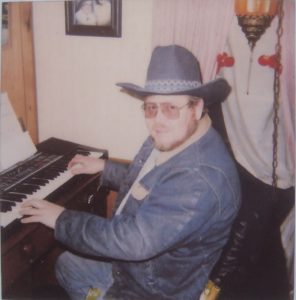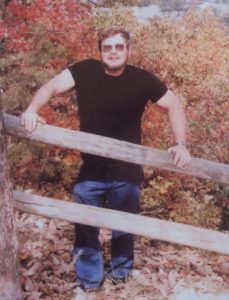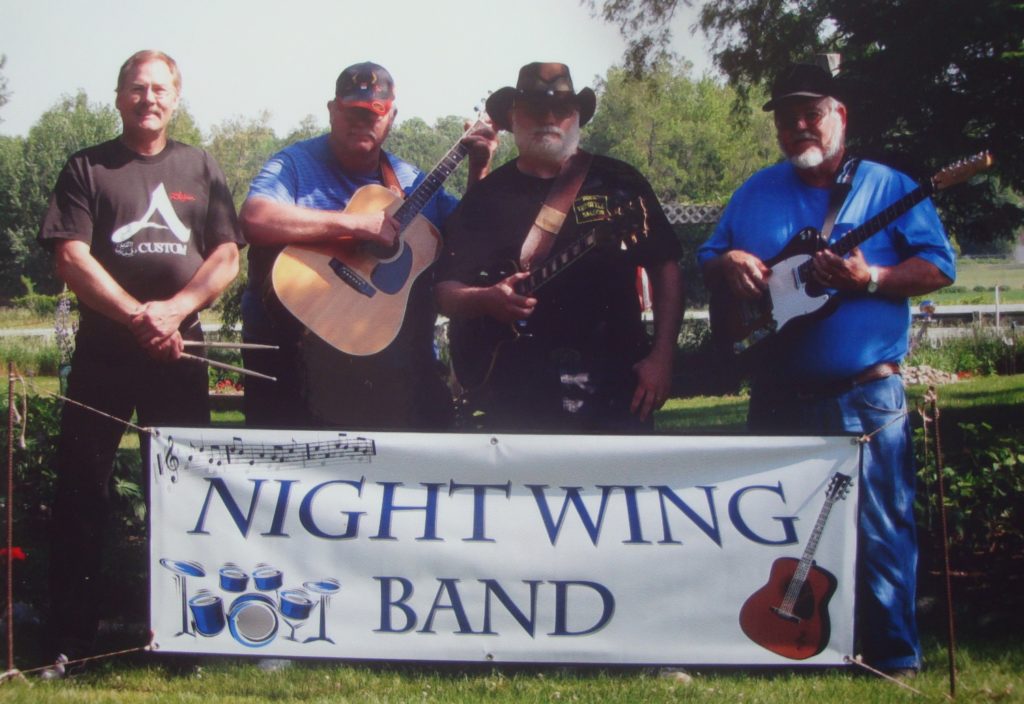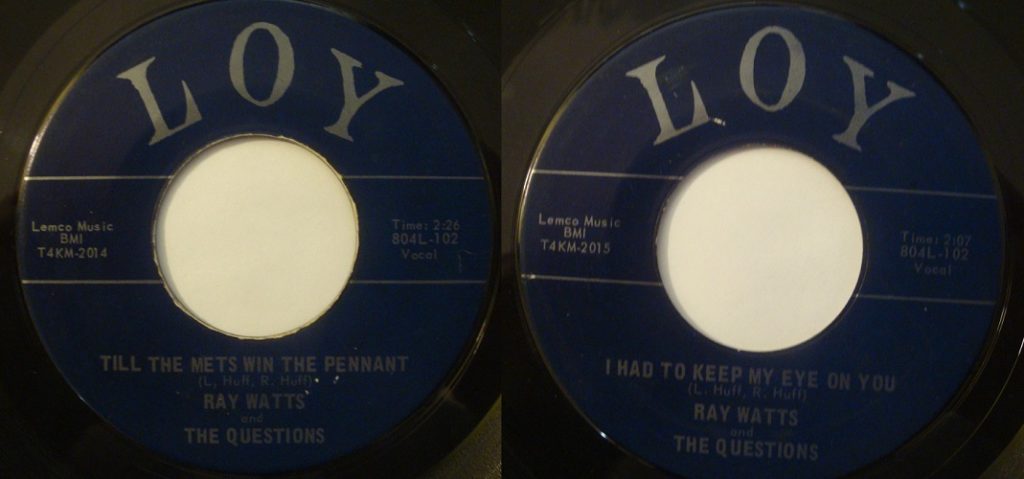When I interviewed Bill Stamper’s widow in 2010 I hoped she could tell me about Ray Watts. At that point it had been maybe a dozen years since I had found his 45 and it was definitely a local favorite of mine. It’s got soul. It’s got baseball. It’s got IT! No luck there, but, hey, it only took me eight more years to figure it out! The write up below is primarily from the only source of information I have, which is Ray’s memory. I was unable to locate any of the original Questions and some names and spellings certainly subject to future correction. Enjoy! [2018 Shawn Chambers / Lexingtunes]
It was all a fun time – really enjoyed it.
Othal Ray Watts was born in 1940 in the unincorporated town of Ford in Clark County, Kentucky. Life along the banks of the Kentucky River in the postwar economy was a challenge for rural folks and the Watts’ were no exception. The patriarch of the family, Othal Sterling, was a hardworking man and used to doing whatever was needed to provide for his family without complaint. Ray’s father pulled time in a flour mill, as a farmhand, and in a factory. Beyond working for a paycheck, Othal Sterling was a hunter and supplemented the grocery supply with fresh seasonal game.

There was not much music to speak of in the immediate family, but just a few branches distant on the family tree was Ray’s great grandfather Tom McCarty. Tom was a fiddling prodigy from the tender age of five or six and it is said he would perch on his father’s shoulders and entertain the locals with his talent.
Generations later, Ray starting plucking guitar chords as a teenager around home and later at Winchester’s Shawnee High School where he entertained the student body on at least one occasion with his rendition of “The Twelfth of Never” – the then-current Johnny Mathis smash hit.
While this solo work should have been laying the bricks for a musical foundation, Ray was soon literally just laying bricks. Eager to help his family, Ray dropped out of school during his junior year to start masonry and foundation work on a Winchester crew.
The family had relocated to Winchester years before and young Ray and his friends certainly had some local celebrities that broadened their horizons. King Records artist (and Winchester native) Jimmie Osborne had married a local girl whose brother happened to be Ronald Lacy. Lacy was Mr Kentucky 1955 and would ultimately be crowned Mr America in 1957. Strong from his hard physical labors, Ray fondly recalls lifting weights and getting fitness pointers from Ron. Of course, the town was shattered by the totally unexpected suicide of Osborne. Celebrity often turns into cautionary tales whether justified or not and while it surely impacted Watts it did not stop him from continuing to play.
By the early to mid-60s, Ray Watts and the Questions had solidified. One of the few mixed-race groups in the Central Kentucky area at the time, the group was usually comprised of either Jimmy Thomas or David Lee on lead guitar, Clarence Gibson on drums, Billy Singleton on bass, and Ray on rhythm guitar and vocals.
Ray and crew put in many nights at the Daniel Boone Inn – dubbed the “Dirty Biker Inn” by the more timid patrons. Here the boys belted out Percy Sledge, the Beatles, country standards or whatever the audience demanded. The mix of bikers, drunks, sneaking high schoolers and some just plain regular folks certainly kept it lively. The DBI was just a short distance from Watts’ boyhood town of Ford so nights there probably felt like a homecoming to him. Further afield, the Questions played the Blue Moon in Richmond where they became fast friends with another young band called the Exiles.
Despite the rural venues Watts never remembered any problems arising from the locals and having African-American friends and bandmates seemed natural to him. He recalls:
Well Winchester had a railroad track, you know, that divided the black and white part of town. I remember we would have the awfullest rock fights, but then later once the schools all got together some of those same kids became my best friends.
Live performance meant a chance at studio work as Ray and company were soon recruited by an old classmate, Bill Stamper, who was putting together some songs and working on creating his own label. Ray was instrumental (pun intended) in the label’s sound almost from the beginning. Watts was co-writer on “Royal Blood” the first non-cover release with the Questions backing Stamper on the recording. Loy’s later release from Otis Johnson “Crying Over You” was co-written by Watts with Question’s guitarist J. Thomas taking partial writing credit on the Johnson flipside “I’m Not a Fool”.
It would be just slightly ironic that the only single released under the Ray Watts name would be two songs written by an outsider. Songwriter Larry Huff was based in New York, but had a cousin Jerry in Winchester. It was during a visit that “Till the Mets Win the Pennant” was brought to the band’s attention. Huff was a man to listen to for just a few years prior he had co-written the #1 Essex hit “Easier Said Than Done.” This new song was perfect for Ray’s vocal style.
Non-baseball fans may not fully appreciate the anguish expressed in the vocals. The 1962 Mets established the 20th Century record for futility with 120 losses in their inaugural season. The team quickly added 100+ loss seasons in 1963, 1964, and 1965. By the time the song appears in the Library of
Congress copyright book in 1965 it seems like the phrase “Till the Mets Win the Pennant” was as good as any to suggest an event that will simply never happen – much like Ray’s previous love of “The Twelfth of Never”.
Curiously, the song was copyrighted Whirlaway Publishing in the 1965 catalog but appears as Lemco Publishing when released in 1966. It can only be speculated that the song was first shopped to the Whirlaway label (remembered for the 1965 Pepper Swift / Monzzas classic “My Yo-Yo”) prior to Huff contacting Stamper’s Loy label with Cecil Jones and Lemco ultimately claiming publishing probably as some studio time tradeoff.
No matter the origin story – Ray Watts and the Questions bring it! Watts throws his vocals full-force – imploring and pleading over the drummer’s crisp snare hits and machine gun firing of the cymbal. The unknown female backers throw in a playful element typical of the time period. A solid two plus minutes of sheer desperation. “You got me going…I’m almost GONE!” Forget 1969 and the Miracle Mets – the despair is clear and present.
The flip is no toss off. “I Had to Keep My Eye on You” is another Huff/Huff composition with Watts elevating his vocals over his skilled lead player and a bongo beat. While certainly more subdued than the A-side, it is worth the time.

The pressing count is lost to history. The boys promoted it locally with shows at the Silo and more stops at DBI. Unfortunately for Huff and the band, the song stuck regionally and didn’t break out to a wider audience.
Despite his early forays into rock and soul, Watts was a country boy at heart. His musical leanings shifted to country in the early 70s and he played in the Lexington area with the Cruisers (Dwight Newton, Bob Gohaggin, and Arthur Rusk) and in Winchester at the Family Inn / Ramada Inn as Congregation with Wayne Riddle, Billy Byrd, Billy Joyce and Ralph Epperson.
Ray Watts left the area for good in 1978 moving to Plymouth, Indiana, where he remains. A move to the Hoosier State did not slow his music. Ray played for decades at parks, campgrounds, city festivals, moose and elk lodges, VFW halls – in short, anywhere that wanted good live country music. His bands included Special Blend, Borderline, Nightwing, and Country Rock Edition. He also started Silver Creek who once opened for Dan Seals.
Ray Watts is now retired from both work and music.
– Shawn Chambers 2018

Discography:
45:
LOY 102 Till the Mets Win the Pennant / I Had To Keep My Eye On You 1966
